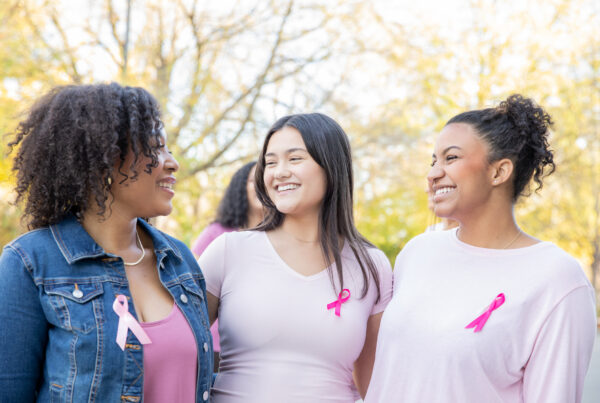Written by: Bree Petracca and Keith G. Tidball, PhD
From deployments to relocations, transitions are a constant in the lives of military families, sometimes bringing unique challenges that test their resilience. Finding sustainable ways to navigate these changes is critical, not just for immediate well-being but also fostering long-term strength and stability.
One powerful, yet simple tool is nature. Research shows that spending time in natural environments can significantly reduce stress and improve mental health; benefits that are particularly vital for military family well-being. As noted in Kransy et al.’s study, nature-based programs provide a sense of stability and community for military families, creating opportunities to connect with their communities thereby fostering resilience and a sense of purpose.
In our recent webinar, “Rooted in Transition: Building Military Family Resilience Through Nature,” we explored how engaging with the natural world can provide immediate relief while planting the seeds for lifelong benefits. This blog post delves deeper into these ideas, continuing the conversation by highlighting how nature offers a powerful counterbalance to military life; more than a temporary solace, it is a sustainable support system. Drawing on research involving real-world programs we will explore how nature can help families build enduring connections, develop healthy habits, and equip them to confidently navigate life’s uncertainties.
The Immediate Impacts of Nature on Military Families
In her webinar, Nicole Rawlinson reflects on the military lifestyle, emphasizing that while change is constant, so too is our connection to nature. This enduring relationship offers military families a solid foundation amidst the uncertainty of relocations, deployments, and transitions. Nature provides immediate relief, fostering a sense of belonging and reducing stress through what is often referred to as Nature Rx or the intentional use of green spaces for preventative and therapeutic benefits. Tidball (2012 and 2013) further emphasize the concept of urgent biophilia, which underscores humanity’s instinctive need to seek solace in nature during times of crisis. For military families, this connection not only lowers cortisol levels and enhances mental clarity but also strengthens social bonds within their communities(UC Davis Health, 2023). By forming these connections early, families establish nature as a lifelong resource, creating habits and resilience they can draw upon, no matter where life’s journey takes them
Building Military Community Resilience Through Nature
Nature fosters resilience within military communities by creating spaces where families can connect and rebuild social ties during transitions. Nicole Rawlinson’s webinar emphasized how shared outdoor experiences, from local parks to national landscapes, can ease feelings of isolation and foster a sense of belonging. Krasny et al. (2015) reinforce this by highlighting the importance of nature-based programs in creating social support networks, which are critical for military families navigating the uncertainties of relocations and deployments.
Programs like Sierra Club Military Outdoors and The Mission Continues organize activities such as group hikes, camping trips, and environmental restoration projects, providing military families with opportunities to bond, build community, and find purpose. The Outdoor Rx Coalition focuses on using nature as a form of therapy, offering activities like paddling, hiking, and mindfulness practices that promote mental and physical health while fostering connections. Krasny et al. also emphasize community gardening projects, which provide therapeutic value and create shared goals for participants, strengthening local ties. For example, veteran-led gardening initiatives have helped establish networks of support while promoting sustainable practices and food security.
Another impactful program is Team Red, White & Blue, which brings veterans and families together through outdoor events like trail running and rock climbing, cultivating leadership and resilience. Additionally, Krasny et al. discuss nature-based youth programs like outdoor adventure camps, which help children of military families develop confidence, build friendships, and establish lasting connections to the natural world. Consumptive outdoor recreation is also very popular with military service members and their families, such as hunting and fishing. Organizations like Wounded Warriors in Action and Rivers of Recovery have programs for currently serving people, couples retreats, and whole family outings.
Practitioners can collaborate with these initiatives or adapt their models to fit local needs. From organizing gardening workshops and community trail cleanups to facilitating family-friendly hikes or camping events, these efforts empower military families to harness the power of the outdoors for building resilience and strengthening their communities.
Nature: A Cost-Effective and Sustainable Resource for Military Family Readiness
Nature stands out as a uniquely cost-effective and sustainable resource in supporting military family readiness. Unlike many other interventions, outdoor spaces often require minimal maintenance once established and can serve communities for generations. Nicole Rawlinson’s webinar underscored the enduring availability of public lands and green spaces, which provide military families with accessible opportunities for stress relief, physical activity, and social connection. Programs like the America the Beautiful Pass, which grants free access to federal recreation areas, further reduce barriers to entry for military families.
Krasny et al. (2015) highlight the civic and environmental benefits of engaging military families in volunteer initiatives like community gardening, trail maintenance, and habitat restoration. These activities not only support nature accessibility but also foster a sense of purpose, belonging, and stewardship. Civic volunteerism helps families build lasting connections to their communities while creating more inclusive and inviting outdoor spaces for others.
Accessibility is key to ensuring all military families can benefit from nature’s resources. Many outdoor spaces lack accommodations for young children, individuals with disabilities, or those with limited finances. Expanding adaptive programs, reducing park fees, and improving transportation can help bridge these gaps and make nature more inclusive.
As we consider the many advantages of nature for military families, one question remains: How can we strengthen future generations of military families by investing in nature today? By prioritizing accessibility, encouraging civic volunteerism, and integrating nature into readiness initiatives, we can ensure that military families, especially when experiencing transition, have the tools they need to thrive now and for years to come.
Conclusion
Nature is not just a short-term solution for the stressors military families face; it is a lifelong investment in their well-being. By fostering habits like hiking, gardening, consumptive outdoor recreation, or simply spending time in green spaces, families build resilience extending beyond the immediate challenges of deployments or relocations. Programs that introduce these activities are cost-effective and sustainable, the benefits of which can last for generations. When military families are taught to turn to nature as more than a retreat
from daily stressors but as a consistent resource for family readiness, they gain a tool for navigating transitions across their entire lives journey – from active duty into civilian life.
To maximize these benefits consider collaborating with organizations that offer nature-based activities for military families. By facilitating the integration of nature into families’ routines, by exploring local nature-based programs or planning regular outdoor activities, families can gain access to larger support networks. Whether it is a weekend bike ride, a community garden project or simple unwinding in a backyard hammock, these small steps can help plant the seeds for long-term resilience.
References
Krasny, ME, KH Pace, KG Tidball, and K Helphand. (2013). Nature Engagement to Foster Resilience in Military Communities. In: KG Tidball and ME Krasny, eds. Greening in the Red Zone: Disaster, Resilience, and Community Greening. Springer-Verlag, Netherlands.
Rawlinson, N. (Presenter). (2024, November 19). Rooted in transition: building military family resilience through nature (Webinar). OneOp. https://oneop.org/learn/160070
Tidball, KG (2013). Urgent Biophilia: Human-Nature interactions in Red Zone Recovery and Resilience. In: Tidball and Krasny, Eds., Greening in the Red Zone: Disaster, Resilience, and Community Greening. Springer publishing.
Tidball, KG. (2012). Urgent Biophilia: Human-Nature interactions and biological attractions in disaster resilience. Ecology and Society. 17(2): 5.
UC Davis Health. (2023, May). 3 ways getting outside into nature helps improve your health. Cultivating Health. Retrieved from https://health.ucdavis.edu/blog/cultivating-health/3-ways-getting-outside-into-nature-helps-improve-your-health/2023/05













